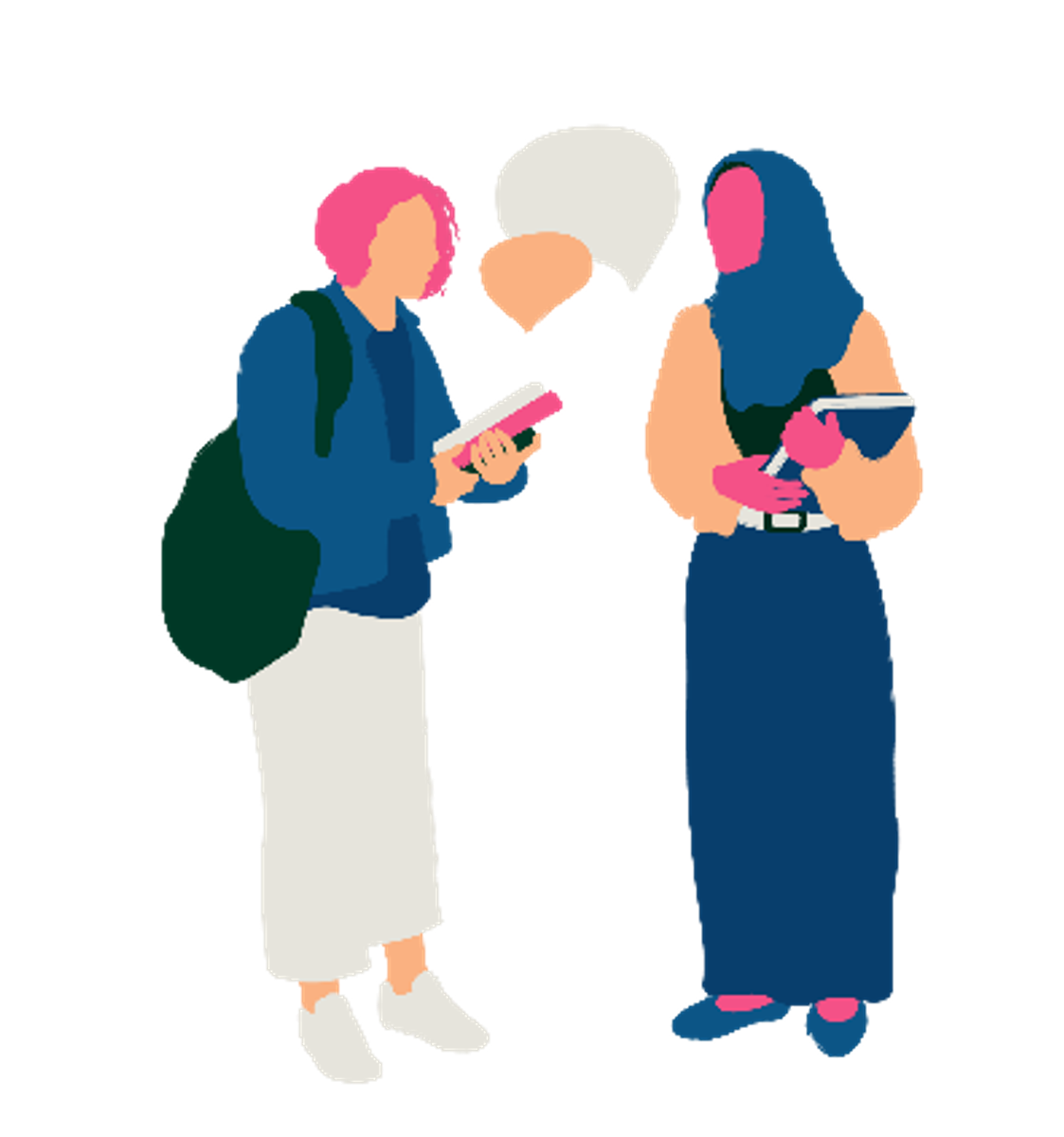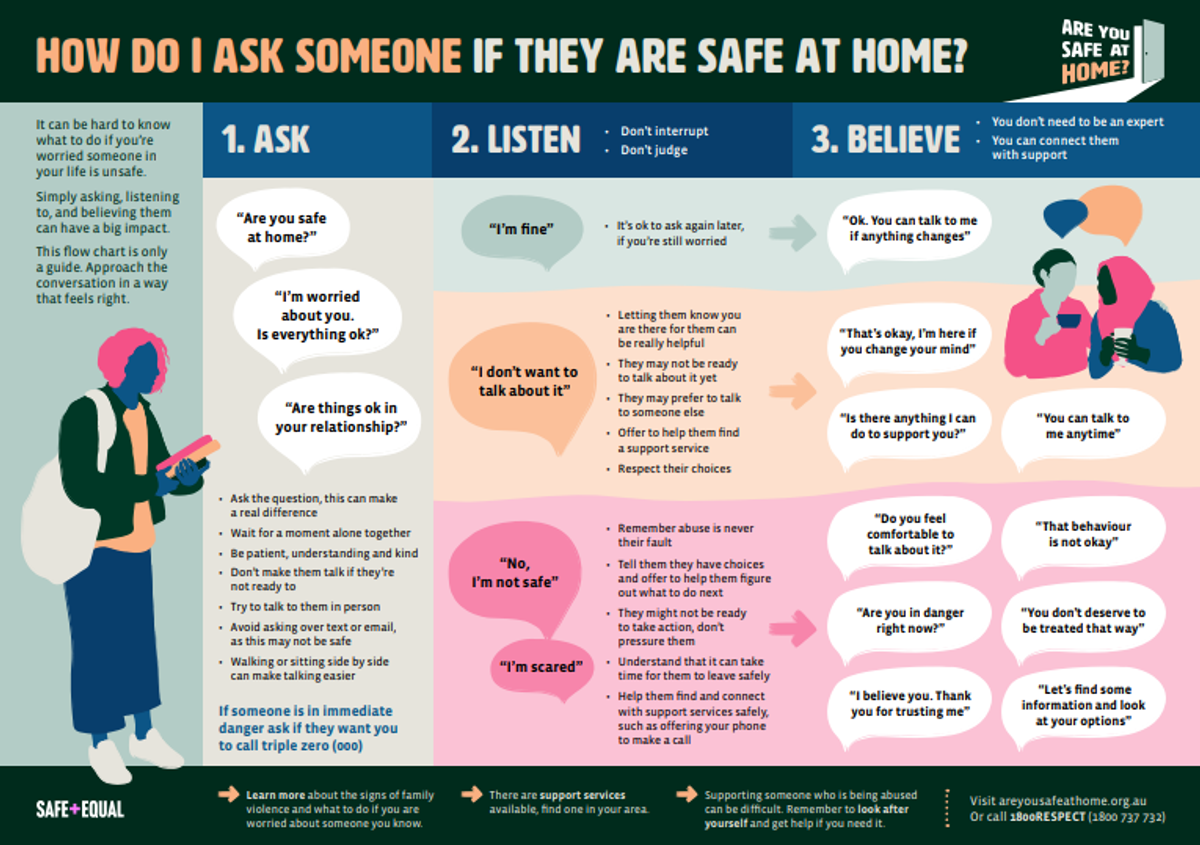Are You Safe at Home? Day 2025

This May, start the conversation to end family violence.
10 May is Are You Safe at Home? Day – an opportunity to initiate meaningful conversations with people who may be experiencing family violence.
Are You Safe at Home? Day encourages individuals, workplaces and communities to take action by asking a simple but powerful question: ‘Are you safe at home?’
By providing people with the confidence and tools to start these conversations, we can break the silence and help connect those at risk with the support they need. Because anyone can experience family violence, and anyone can help end it.
For more information on the campaign, or to get involved and support Are You Safe at Home? Day 2025?, visit wwww.areyousafeathome.org.au.
For translated resources about family violence and waysto access support, visit www.areyousafeathome.org.au.
Are you worried about someone?
Family violence often happens behind closed doors, making it hard for people experiencing abuse to reach out for support.
We need to look out for our loved ones and each other. By asking someone you know ‘are you safe at home?’, your support could make a real difference.
If you’re worried someone you know may be experiencing family violence, ask if they are safe and if there’s anything you can do to help. Many people worry they’ll be interfering, but with the right approach this conversation could make a real difference.
Wait until you have an opportunity to speak with the person alone and in an environment that’s safe for both of you. Approach the conversation sensitively and empathetically. Don’t pressure them to talk if they are uncomfortable. Be patient and let them know you’re there if they need to talk.
It takes a lot of strength and courage to tell someone about violence or abuse. If someone opens up to you, it’s important that you listen without interrupting, believe them, and take the abuse seriously.
Start the conversation
How do I ask someone if they are safe at home?
It can be hard to know what to do if you’re worried someone in your life is unsafe. Simply asking, listening and believing them can have a big impact.
This flow chart is only a guide. Approach the conversation in a way that feels right.
Kate Probert
Secondary School Nurse


